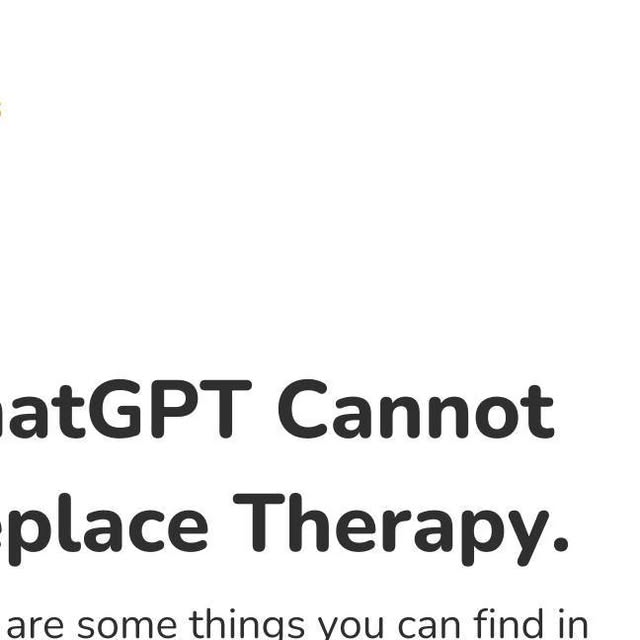

Can ChatGPT replace therapy and therapists? 🤔
By TheMindClan.com | Instagram
This is a question that's becoming more common by the day. While AI-assisted mental health tools and chatbots are...
We want you to feel safe. This AI tool is not a substitute for crisis support.
A Real Therapist?
These articles provide insights into the benefits, risks, and ethical considerations of using AI chatbots for therapy.
Learn about our campaign on the limits of AI in mental health support.
The growth of AI therapy solutions stems from several market factors:
However, our initiative emphasizes three critical limitations:
Essential considerations for users:
While AI tools may offer supplementary support, they lack the human capacity for nuanced care. We strongly advocate consulting licensed mental health professionals for any clinical needs. Human therapists provide irreplaceable qualities including ethical responsibility, adaptive expertise, and genuine empathy that technology cannot replicate.
For those interested in learning more about the limitations and potential risks of using chatbots for therapy, please refer to the this section of this page. It provides a curated list of articles and insights that discuss both the potential and limitations of AI in mental health care. These resources emphasize the importance of human connection in therapy and the current limitations of AI technology in providing comprehensive mental health support.
Key points to consider:
It’s important to approach AI-based mental health tools with caution and to seek professional help when dealing with serious mental health concerns.
This demonstration illustrates potential limitations of AI systems in therapeutic contexts. It does not constitute medical advice, diagnosis, or treatment. Always consult qualified healthcare professionals for mental health concerns.
External links provided for informational purposes only. TheMindClan.com does not endorse third-party services or content. Gifs and images are sourced from Giphy.com and are used for illustrative purposes only.